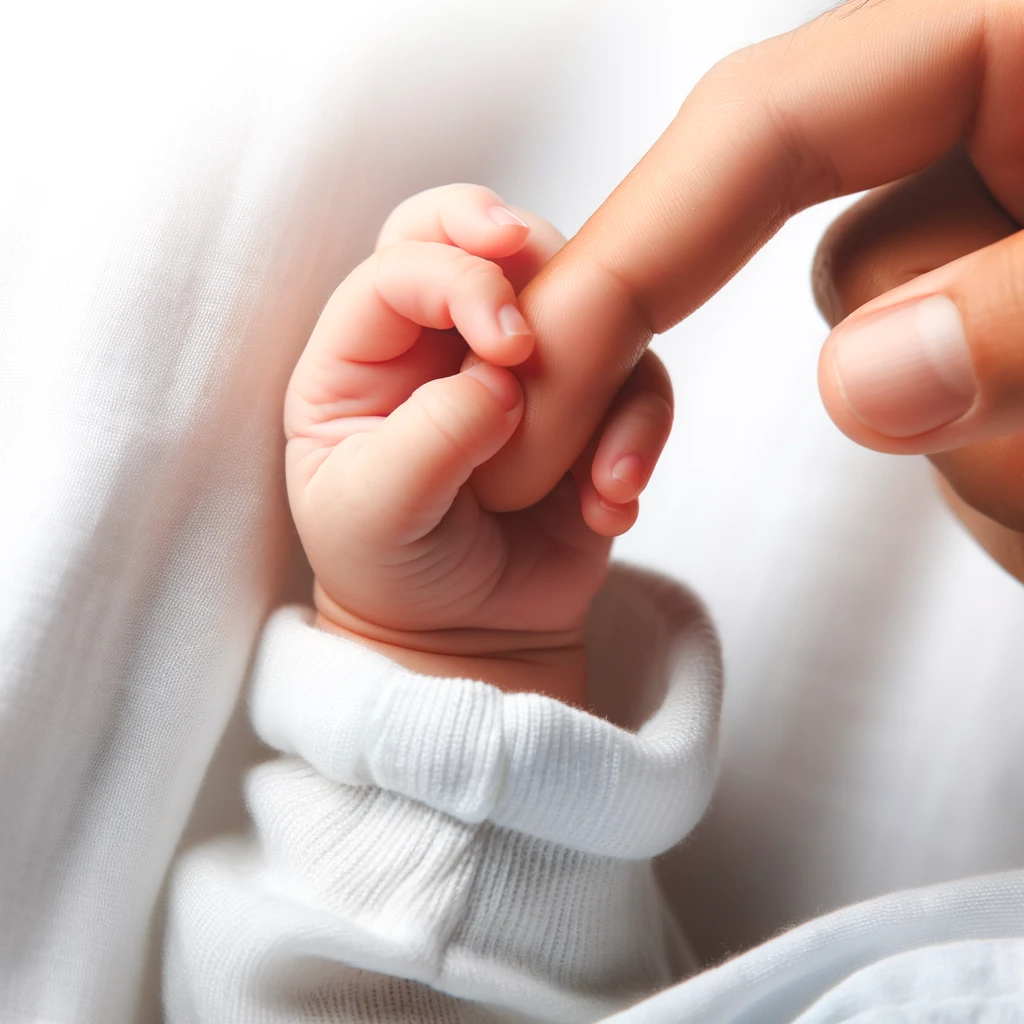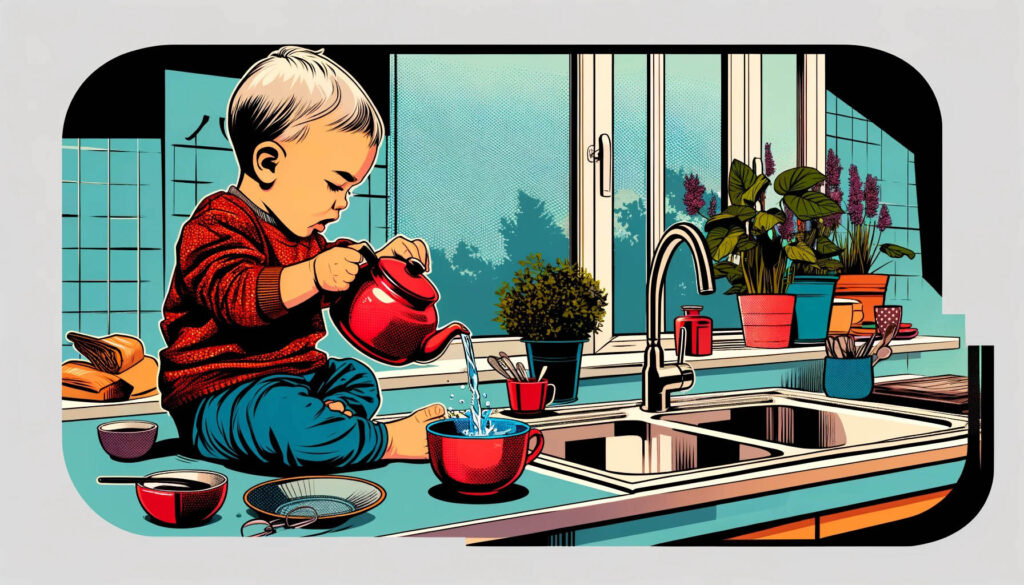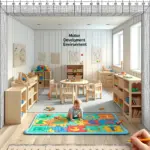Maria Montessori, a renowned educator, believed that the development of intelligence is closely linked to the use of hands. According to her philosophy, manipulating objects and engaging in concrete tasks are key in children’s cognitive development. From picking up toys to stacking blocks, each activity that involves their hands is a step towards building their intellectual capabilities. This approach aligns perfectly with modern developmental psychology, which emphasizes the importance of sensory and hands-on experiences in early childhood learning.
Nurturing the Grasp Reflex: A Practical Approach to Developing Hand Skills

From birth, infants exhibit a fundamental capability known as the grasp reflex. This reflex isn’t merely an intriguing phenomenon; it serves as an essential part of the early development of manual skills. When you gently touch your baby’s palm, their fingers instinctively close around yours. This reaction is more than just an innate reflex; it acts as the initial nourishment for the neurological pathways involved in grasping. Regularly engaging this reflex through simple daily interactions is a practical and effective method to expedite the maturation of your child’s manual abilities. This approach is not about offering extraordinary tips, but rather about providing an efficient strategy to enhance hand dexterity from an early age.
Creating an Ideal Learning Space
When it comes to nurturing your child’s fine motor skills, the importance of creating a conducive environment cannot be overstated. An ideal space for your little one is where everything they need is within easy reach. Think about organizing your baby’s space with furniture and storage solutions like low shelves and open casiers that are tailored to their height. This accessibility not only fosters independence but also opens up numerous opportunities for your child to engage in activities that enhance their manual dexterity.
Practical Tips for Encouraging Fine Motor Development
A key aspect of developing fine motor skills is through engaging in a variety of activities. Here are some practical, easy-to-implement activities that can significantly aid in this development:

Pouring and Transferring: Start with simple tasks like pouring water from one container to another or transferring small items using spoons. These activities are excellent for developing hand-eye coordination.
Buttoning and Lacing: Introduce your child to dressing frames or toys that incorporate buttons and laces. This not only helps in improving finger dexterity but also prepares them for self-dressing.
Egg Cracking: Involve your child in safe kitchen activities like cracking eggs. It’s a fun way to enhance their grip and control.
Remember, the key to developing these skills is consistency and patience. Every child develops at their own pace, and it’s important to celebrate small milestones along the way.
The Bigger Picture
Engaging in fine motor activities is about more than just developing manual skills. These activities play a crucial role in enhancing concentration, improving hand-eye coordination, and helping children grasp abstract concepts through tangible means. As your child engages in these activities, they gain a deeper understanding of their environment, laying a strong foundation for both cognitive and physical growth.
Rice Transfer: A Simple Yet Effective Fine Motor Activity
As your child grows, you can introduce more structured activities to further develop their fine motor skills. One such activity involves transferring grains of rice into a container with a narrow neck. This exercise not only improves hand-eye coordination but also enhances focus and concentration. It’s a fantastic way to refine those tiny muscles in their hands and fingers, preparing them for more complex tasks in the future.
Fishing for Fun: Enhancing Dexterity
Water play is not only immensely enjoyable for toddlers but also beneficial for their fine motor development. Fishing activities, where children pick up objects from water, offer a playful way to improve hand-eye coordination and dexterity. Whether using a net, a spoon, or their fingers, this activity is adaptable to different skill levels and always a hit among the little ones.
The Art of Screwing and Unscrewing: Mastering Precision
Introducing your child to screwing and unscrewing tasks is an excellent way to develop precision and coordination. Start with larger objects that are easier to handle and gradually move to smaller, more intricate items. This activity not only strengthens the muscles in their hands and fingers but also teaches them about cause and effect as they see the results of their actions.
Puzzle Play: A Classic Approach to Coordination
Puzzles are a time-tested tool in enhancing fine motor skills and hand-eye coordination. They come in various forms, suitable for different ages and developmental stages. For younger children, large, easy-to-handle pieces are ideal, while older toddlers can be challenged with more complex jigsaw puzzles. Puzzles not only improve motor skills but also offer cognitive benefits like problem-solving and spatial awareness.
Creative Expressions: Painting and Drawing
Artistic activities like painting and drawing are not just for fun; they’re instrumental in developing fine motor skills. Holding brushes and crayons, creating strokes on paper, and expressing their imagination—all these actions refine their hand movements and coordination. Additionally, these activities unleash creativity and provide a sense of accomplishment and confidence in young children.
Fine motor skills are essential for a child’s overall development and independence. By incorporating these activities into your child’s playtime, you provide them with the tools they need to explore, learn, and grow. Remember, the key is to make these activities fun and engaging—after all, the best learning happens through play!
In summary, by creating an environment that encourages exploration and by introducing a range of fine motor activities, you are setting the stage for your child’s comprehensive development. Remember, the journey of growth is as important as the destination, so enjoy these moments of discovery and learning with your child.




